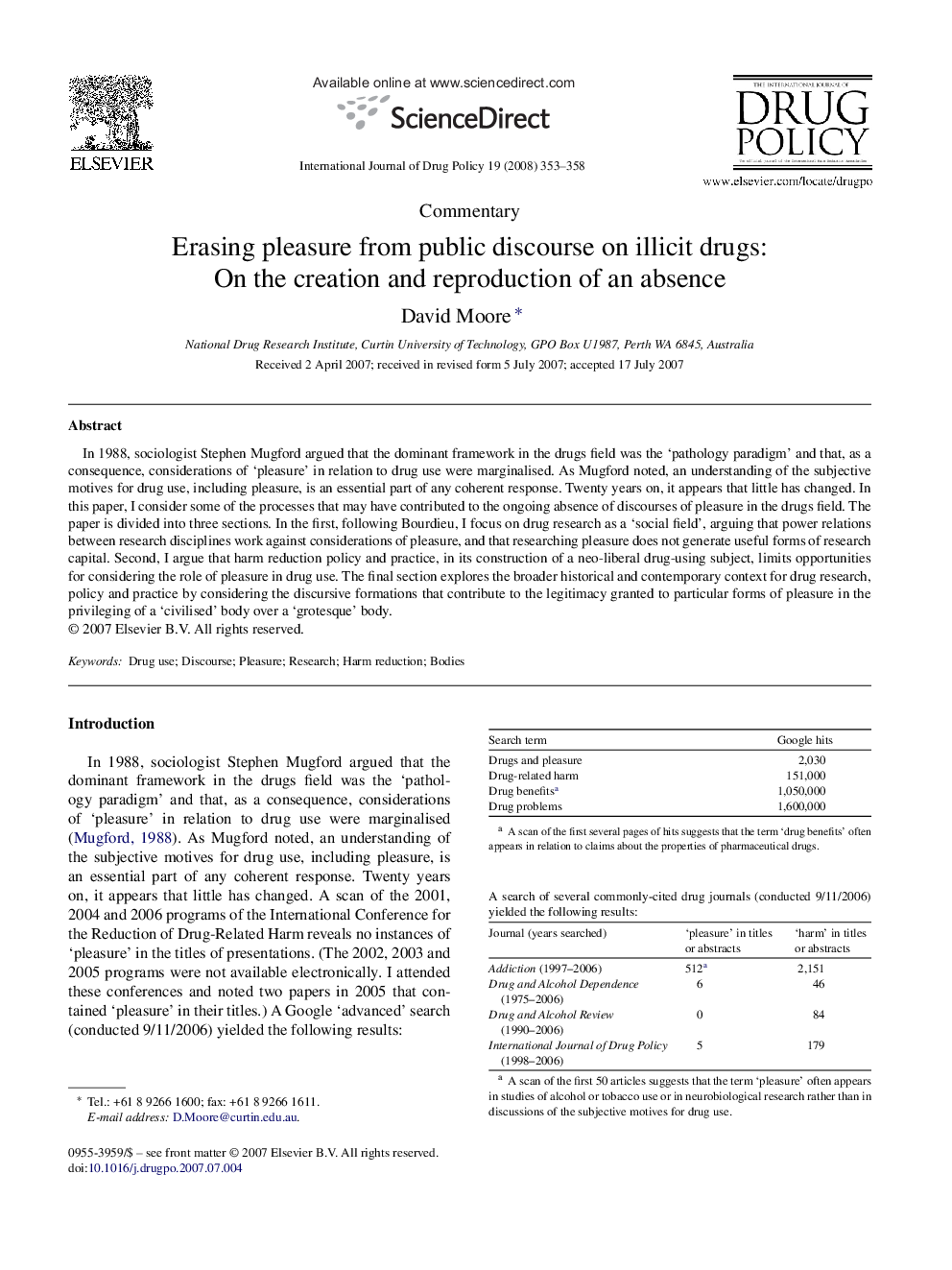| Article ID | Journal | Published Year | Pages | File Type |
|---|---|---|---|---|
| 1075876 | International Journal of Drug Policy | 2008 | 6 Pages |
In 1988, sociologist Stephen Mugford argued that the dominant framework in the drugs field was the ‘pathology paradigm’ and that, as a consequence, considerations of ‘pleasure’ in relation to drug use were marginalised. As Mugford noted, an understanding of the subjective motives for drug use, including pleasure, is an essential part of any coherent response. Twenty years on, it appears that little has changed. In this paper, I consider some of the processes that may have contributed to the ongoing absence of discourses of pleasure in the drugs field. The paper is divided into three sections. In the first, following Bourdieu, I focus on drug research as a ‘social field’, arguing that power relations between research disciplines work against considerations of pleasure, and that researching pleasure does not generate useful forms of research capital. Second, I argue that harm reduction policy and practice, in its construction of a neo-liberal drug-using subject, limits opportunities for considering the role of pleasure in drug use. The final section explores the broader historical and contemporary context for drug research, policy and practice by considering the discursive formations that contribute to the legitimacy granted to particular forms of pleasure in the privileging of a ‘civilised’ body over a ‘grotesque’ body.
